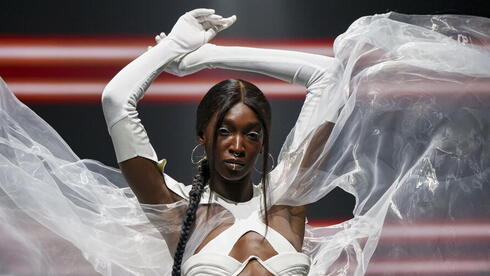After a year’s pause and amid a nation grappling with the weight of war, Tel Aviv Fashion Week is making its anticipated return this October. What was once postponed in March now takes on new urgency—and new meaning—as designers, artists, and visionaries gather to prove that creativity does not surrender in times of conflict.
Produced by fashion impresario Motty Reif, the four-day event (October 26–30) will feature 28 designers from across Israel’s dynamic fashion landscape. The venue? Still under wraps, but soon to be unveiled.
The lineup reads like a who’s who of Israeli fashion: Victor (Vivi) Bellaish will open the week with a flourish, followed by an intimate conversation with curator Yaara Keydar. The ever-provocative Tovale returns with her signature irreverence. Alon Livne, Shay Shalom, Dror Kontento, Shahar Avnet, and the boundary-pushing duo Mother of All (Golan Taub and Noa Pasternak) will grace the runway alongside bold talents like Aaron Ganesh and veteran maestro Yaron Minkowski. From the fresh vision of Kian Frankfurt’s debut to the elegance of Idan Laros and the inventive energy of Shenkar’s student designers, the roster is rich, reflective, and defiantly original.
“This isn’t just about clothes,” Reif told reporters. “It’s about presence. About saying: We’re still here. We’re still dreaming. And we’re still designing.”
Fashion Week, Reif insists, is a bridge—not just between fabric and form—but between people, communities, and the beating heart of a country trying to breathe through the smoke. With support from international guests, global media, and Jewish communities abroad (thanks in part to actress and activist Noa Tishby), Israeli designers are hoping for more than applause—they’re hoping for solidarity.
“Yes, we’re still in crisis,” Reif admitted. “But this moment demands that we show up. We create beauty not in denial of pain, but in dialogue with it.”
The opening gala will reflect that ethos: a celebration of hope and love, wrapped in elegance, stitched with defiance.
While the names of Haifa and Bezalel are missing from this year’s program (for now), Shenkar will carry the torch for student talent. Reif says he’s open to expanding the roster if the right calls come in.
Budgets are tight—$1.8 million shekels are being raised through commercial partnerships—but the urgency is greater. “Designers are holding on by threads,” Reif said. “We’re doing this to help them survive.”
The Foreign Ministry is expected to fund international travel, while local sponsors will support designers directly. After years of pandemic lockdowns, judicial unrest, and now war, Israel’s fashion economy is at a crossroads.
But if the shows are anything like Reif’s vision, there’s reason to believe in a renaissance.
Stylist and creative partner Sharona Bond Matarasso joins Reif once again in ensuring Fashion Week remains not only relevant but responsible. From women-led panels to firm commitments on body inclusivity and diversity, the week’s values are stitched as tightly as its seams.
“Fashion weeks around the world have slid backward,” Reif said. “We won’t.”
Even designers like Tovale, once insistent on traditional model types, have agreed to cast wider. “Older models. Different sizes. Real people,” Reif said. “We’re not going back to old standards. We’ve fought too hard.”
In October, the runways of Tel Aviv won’t just shimmer—they will speak.
